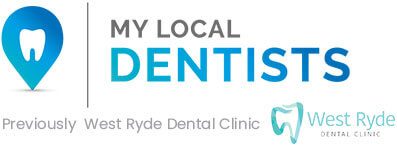 Your lower jaw is U-shaped and surprisingly vulnerable to injury. In fact, jaw fractures come in number two on the list of facial fractures, and number ten on the list of fractures anywhere on the body.
Your lower jaw is U-shaped and surprisingly vulnerable to injury. In fact, jaw fractures come in number two on the list of facial fractures, and number ten on the list of fractures anywhere on the body.
When a lower jaw fracture occurs, in more than half of the cases it will fracture in two or more places.
Because broken jaws are so unexpected and can be so devastating, My Local Dentists West Ryde would like to take this opportunity to present you with some general information about them, so should you or a loved one be unfortunate enough to suffer a broken jaw, you will be prepared.
Causes of fractured jaws
Trauma to the chin and face is the general cause of most fractured jaws, and this breaks down into several broad categories:
- Accidental falls – normally fainting for adults and while at play for children
- A motorcycle or bicycle accident in which the rider goes over the handlebars
- Motor vehicle accidents in which the head hits the dashboard or steering wheel
- Fighting during which a person is struck in the jaw
- An injury while participating in sports/athletics
Signs & symptoms of a fractured jaw
- Jaw pain
- Swelling and bruising in the region
- Fatigued jaw
- Difficulty opening your mouth
- Ringing in your ears
- Dizziness
- Headache
- Broken or loose teeth
- Popping sounds in your jaw
- Neck pain
- Alteration in the way the teeth fit together
- A jaw that locks
- A bump on the jaw bone or joint
Patients should seek immediate medical care if they suffer from these symptoms. The patient should have someone else drive them to the hospital.
If any delay is anticipated in getting to emergency care, follow these steps:
- Immobilise the jaw by wrapping a cloth bandage under the chin and securing it over the top of the head. If a bandage is not available use a tie, handkerchief, belt, or similar item.
- Ensure the bandage can be easily removed in case nausea develops.
- Apply ice to control swelling, but do not place ice directly on the skin.
- If you have trouble breathing, immediately call 000 for help.
- Do NOT attempt to reset a broken jaw yourself, as this is a task only for a doctor!
Treating a fractured jaw
- If the fracture is not too severe, the treatment is rest and recovery. This includes limiting jaw use such as speaking or brushing your teeth.
- If the fracture is severe, your physician may use splint therapy to hold the jaw in place and keep it in the right position for healing.
- If the fracture is extremely bad, surgery may be necessary, or the jaw may be set and wired shut to prevent movement and ensure unimpeded healing.
Aftercare
After receiving treatment from your physician or dentist, follow their aftercare instructions precisely to ensure that your jaw heals entirely and properly.
- Restrict your diet to soft foods, in many cases liquid foods. Consume these foods through a syringe or straw. A blender and a good recipe book can be your best friend in recovery from a fractured jaw.
- Apply ice to control swelling, but never apply ice directly to the skin as this can cause frostbite and other damage.
- Use over-the-counter anti-inflammatory medications such as Ibuprofen to ease any pain or discomfort.
- Be sure to avoid any impact or pressure on the recovering jaw. This means no sports or athletics, practices that might include falls, or sleeping on your back.
Preventing fractured jaws
There is a demographic element here, with the most significant risk for fracture coming for males between 20-30.
The number one rule is safety:
- Wear a seatbelt and shoulder restraint in a car
- Don’t run on pool decks or uneven surfaces
- “Fall-proof” your house if children or elders are present
- Wear appropriate safety gear and follow safety procedures on bikes or motorcycles
- Don’t get into altercations
In many ways, prevention is only common sense. There is one more safety strategy that My Local Dentists West Ryde can help you with:
- Prevent future sports-related jaw injuries by wearing a mouthguard!
Mouth guards are a smart investment in your dental health. When worn during sports or athletics, they can help prevent tooth damage and loss as well as reduce the risk and severity of jaw injuries. The best mouthguards are customised to fit individual mouths and don’t interfere with breathing or talking.
Talk to us to learn more about the benefits of mouth guards and preventing jaw injuries!
Mouthguards at My Local Dentists West Ryde
My Local Dentists West Ryde Advantage
At My Local Dentists West Ryde, our treatments and service are 100% personalised to you and your needs. Our dentists are highly motivated and accredited practitioners with graduate degrees from the University of Sydney.
Alongside our dentists, the supporting staff at My Local Dentists West Ryde are tremendously dedicated and experienced to ensure that each visit with us is as pleasant as possible.
GAP FREE
General Check-up, Scale and Clean, X-rays and Fluoride treatment (with any health insurance)*for new patients only
Marketplace Employees Discount
10% discount for employees in the Marketplace
Call your West Ryde dentist on (02) 9809 7000 or visit us at Shop 20 West Ryde Marketplace 14 Anthony Road in West Ryde.
